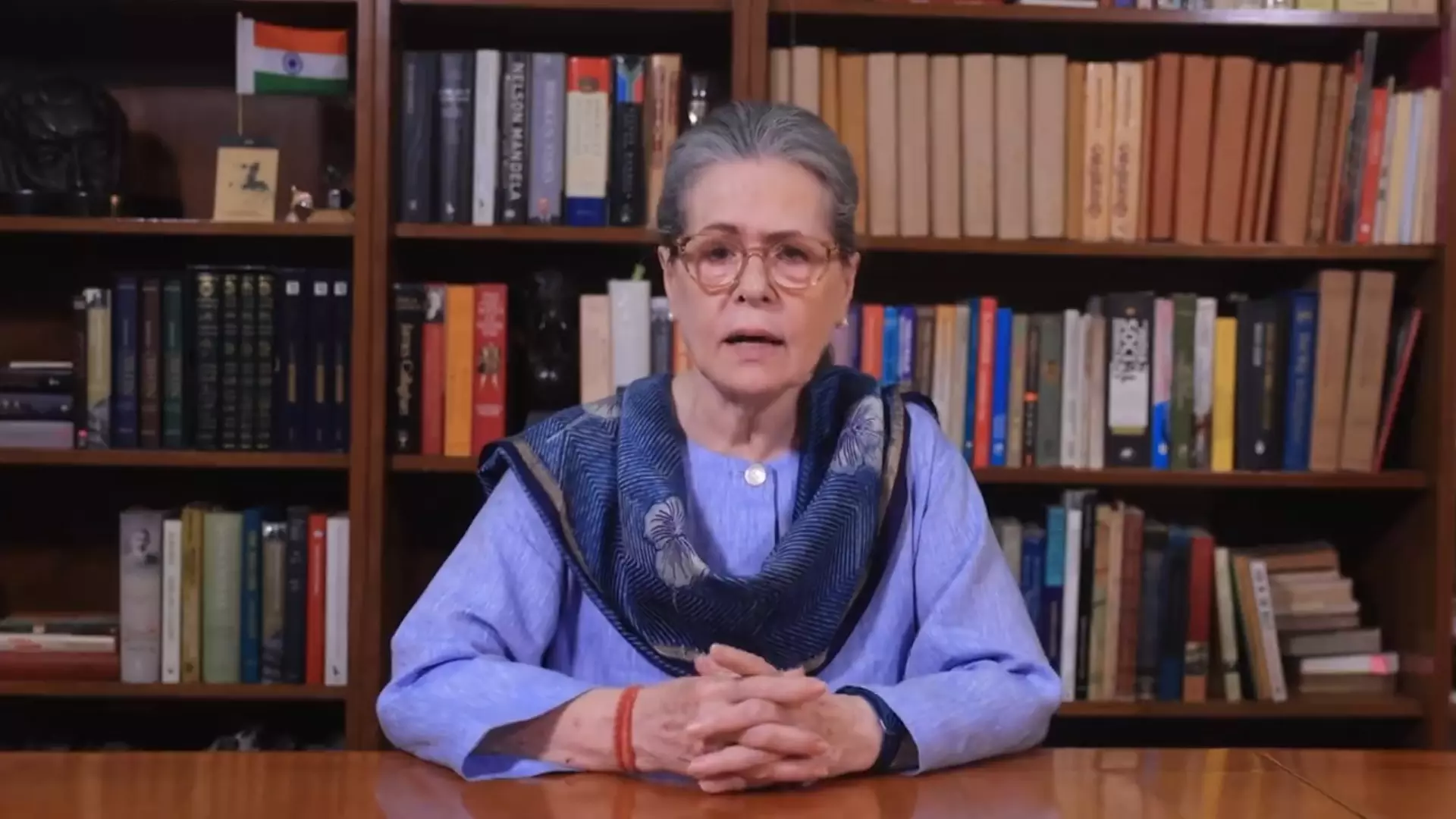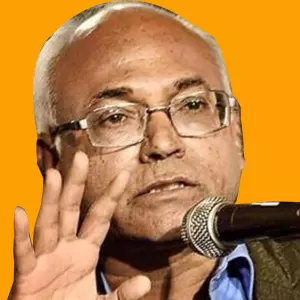
- Home
- India
- World
- Premium
- THE FEDERAL SPECIAL
- Analysis
- States
- Perspective
- Videos
- Sports
- Education
- Entertainment
- Elections
- Features
- Health
- Business
- Series
- In memoriam: Sheikh Mujibur Rahman
- Bishnoi's Men
- NEET TANGLE
- Economy Series
- Earth Day
- Kashmir’s Frozen Turbulence
- India@75
- The legend of Ramjanmabhoomi
- Liberalisation@30
- How to tame a dragon
- Celebrating biodiversity
- Farm Matters
- 50 days of solitude
- Bringing Migrants Home
- Budget 2020
- Jharkhand Votes
- The Federal Investigates
- The Federal Impact
- Vanishing Sand
- Gandhi @ 150
- Andhra Today
- Field report
- Operation Gulmarg
- Pandemic @1 Mn in India
- The Federal Year-End
- The Zero Year
- Science
- Brand studio
- Newsletter
- Elections 2024
- Events
- Home
- IndiaIndia
- World
- Analysis
- StatesStates
- PerspectivePerspective
- VideosVideos
- Sports
- Education
- Entertainment
- ElectionsElections
- Features
- Health
- BusinessBusiness
- Premium
- Loading...
Premium - Events

In a rare theoretical broadside, the Congress veteran has accused the ruling dispensation of plotting an ‘ideological coup’ to replace constitutional democracy
Sonia Gandhi has formulated an apt theoretical position for the Congress on the RSS/BJP's future direction in changing the present constitutional democracy into a 'Theocratic Corporate State'. She shared this in her written message at the party’s national legal conclave on ‘Constitutional Challenges — Perspectives and Pathways’, at Indira Bhavan, New Delhi,
She said 'the Constitution is under siege as the ruling BJP is using its power to dismantle the very framework it long opposed'.
Further, Sonia accused the BJP-RSS of plotting “an ideological coup” to replace “our democratic republic with a theocratic corporate state serving the powerful few”.
Congress takes up mantle
This kind of serious political economic formulation about the RSS/BJP's agenda has not been done by any Congress politician in the past.
The communists have left the political arena to the Congress to not only fight the RSS’s socio-political and economic ideology, but to formulate new theoretical ideas. They are no longer in a position to formulate creative political economy concepts that could expose the RSS/BJP caste-spiritual ideology. This is because they have not yet grappled with the caste ideology.
Also read | A Maverick in Politics review: Mani Shankar Aiyar’s Congress chronicles
The regional parties cannot formulate such impactful nationally and internationally useful concepts that draw battle lines for ideological and political struggles.
After Rahul Gandhi emerged as a powerful socio-political reformer and agenda setting leader in the country, Sonia and Priyanka Gandhi seem to have decided to fully go with his fight against RSS/BJP.
Bringing caste into focus
The stand on caste census, Ambedkar’s ideology, 'bringing back' Sardar Vallabai Patel to the Congress fold, and openly attacking Manu Dharma Shastra, as an RSS foundational ancient text which is an antithesis of Ambedkar’s Constitution, is totally a new phenomenon.
The fact that Mahatma Gandhi, Ambedkar, Nehru and Patel’s photos were put very visibly on the conclave stage is an indication of a major shift in the ideological strategy.
Photos of Mahatma Gandhi, Dr Ambedkar, Nehru and Patel put up on the conclave stage.
Added to this, Sonia Gandhi for the first time acknowledged the role of Dr Ambedkar in a written statement as architect of the present Constitution in the context of the RSS proposal to remove the words ‘secularism and socialism’ from the preamble. This has a serious basis for her new formulation.
Taking a call
This may help the fence sitters in the Congress and those who are sceptical about Rahul Gandhi’s caste census, ‘Jai Bapu, Jai Bheem and Jai Smavidhan’ slogan may come on board.
The caste census campaign of Rahul has already got Doubting Thomases in the party to come round. They have nowhere to go, as the RSS/BJP too has agreed to a caste census.
The Shashi Tharoor kind of leaders may move out for their future moral death. The RSS will use such leaders and throw them out. Sonia proved to be a person ready to face the consequences.
She said: “Now they seek to erase socialism and secularism, pillars of Ambedkar’s vision of equal citizenship. This is… an ideological coup replacing our democratic republic with a theocratic corporate state serving the powerful few.” She was also candid in saying that it "betrayed Dalits, Adivasis, OBCs”.
Theocratic Corporate State
The fundamental inbuilt ideological issue with the establishment of the Theocratic Corporate State is deeply related to the future life of Shudra/OBC/SC/STs in India.
Also read | Manmohan Singh: Wronged in the popular narrative of a nation he served right
Historically, the Manu Dharma is a pro-Varna Dharma legal framework, wherein the Dwija castes could have monopoly over the Shudra and Chandalas spiritually, socially, economically and politically. Though the RSS was known as a Brahmin-Bania organisation for a long time, during the Narendra Modi-Amit Shah regime it turned into a Bania-Brahmin monopoly network with Banias leading in many fields and with control over monopoly capital.
Modi’s OBC background is a mask. After 11 years of Modi-Shah rule, the way the RSS allowed them to ruin the agrarian and artisanal economy is a pointer to the caste control monopoly with a massive privatisation process. The three farm laws that were defeated by Shudra farmers were a pointer to that.
Kautilya's Arthashastra
The framework of the Theocratic Corporate State that RSS wants to establish has theoretical foundations in Kautilya’s Arthashastra as well.
Kautilya says, “The people consisting of four castes (Shudra, Skatriya, Vaishya, Brahmin) and four orders of religious (Hindu) life, when governed by the king with sceptre will keep to their respective paths”.
When the RSS talks of Sanatana Dharma it talks about this central ideology of Kautilya, which got legalised through Manu Dharma that Sonia Gandhi is talking about in her message.
The Shudra/OBCs/Dalits/Adivasis have no right to become priests in the spiritual realm and no right to become the owner of Dhana (wealth), which, in a monopolistic way, was turned into Gupta Dhana (untaxed wealth).
Under sceptre of Dwijas
The state is completely under the control of Dwija power wielders, which the RSS top leaders consistently believed. And also the wealth in a modern capitalist form, which Sonia Gandhi calls corporate capital, can never be allowed to be shared by the Shudra/Dalit productive forces.
The productive forces as per the RSS world view, must always be under the sceptre of Dwijas, who do not participate in production. They come to own the phala (fruits) of their labour as property, wealth, land, industry, mall and so on.
Also read | With all credits for Sonia, Revanth govt retells story of Telangana movement
After Jawaharlal Nehru’s formulation of Democratic Socialism concept to make India a welfare state where all castes have a right to own wealth and duty to participate in wealth creation, the RSS attacked him as an un-Indian concept builder. He was attacked as a lackey of communist Russia.
In an unexpected turn, Sonia Gandhi revealed what she described as the RSS’s underlying future vision for the political economy of Sanatana Dharma — a theocratic corporate state in which Shudras, OBCs, Dalits, and Adivasis would remain under complete control. Her remarks drew media attention, particularly in an environment where much of the corporate press is perceived as being anti-Congress. We know that she hardly speaks in a theoretical language. However, she did now.
Threat to OBC future
No Shudra/OBC/Dalit/Adivasi working in the RSS/BJP camp could understand its implication to his/her own children’s future because the notion of Hindu Rashtra is deep down in their mind and it works like Karma siddhanta. They are constantly made to seek solace in Kumbh Melas, Teertha Yatras and singing devotional songs.
Serious statecraft is out of their world view. The OBC/Dalit/Adivasi ministers of BJP are kept busy in attacking the Opposition. They know that power is not given to them to oppose Manu Dharma but to advance it. But there lies the danger for all the Shudra/OBC/Dalit/Adivasis in future.
The theories of Hindutva political economy are being built by its foreign English educated intellectuals, while RSS/BJP keeps opposing English education for the productive masses. Hardly socio-political thinkers emerge from OBCs.
European context
In the European context, the role of Theocratic Feudal State was understood by Machiavelli in the early 16th century. But theocratic corporate state theory was not debated in the post-modern political economy in Europe because the state and religion were seriously separated.
The Muslim world is already living in a theocratic corporate state. The Indian Muslim thinkers also cannot fight the theocratic corporate state. We are not sure whether the Dwija political economists, even sympathetic to Congress, enter into debate on Sonia Gandhi’s formulation.
There are caste interests involved in this battle, even if they pretend that they belong to ‘No Caste’, as the Telangana caste survey has shown millions exist in that category.
Now that this theory has come from Sonia Gandhi, a veteran leader of few words, let us wait and see how political economy pundits of varied ideologies of India debate the concept.
(The Federal seeks to present views and opinions from all sides of the spectrum. The information, ideas or opinions in the articles are of the author and do not necessarily reflect the views of The Federal)


